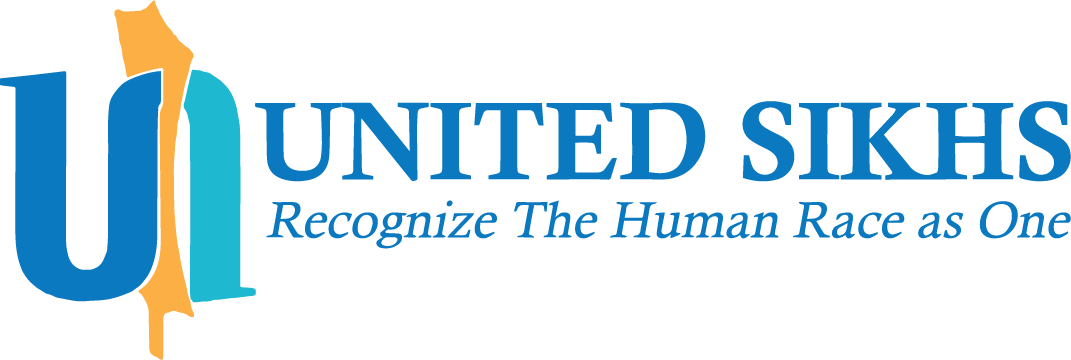UNITED SIKHS will Appeal to the EU Human Rights Court and the UN by End January
“We are disappointed that the judgment of the Conseil d’Etat attached preponderant weight to the principle of secularism and failed to give adequate weight to deeply held religious beliefs,” said Stephen Grosz, Partner and Head of Public Law and Human Rights Department in Bindman and Partners, a leading UK Human Rights law firm.
“Attachment to one’s faith, to one’s language and culture, and to one’s way of life, thought and belief – all this is natural, legitimate and profoundly human…To deny that is to sow the seeds of humiliation. A “clash of civilizations will not be averted by forcing everyone to think and believe alike; cultural and religious diversity must be accepted everywhere and by all.”: French President Nicolas Sarkozy speaking at the UN General Assembly in New York on 25th Sept 2007.
Paris, France – Last week the Conseil Detat, France’s highest court, ruled that the ban against the turban in schools was legal because there was a greater interest to be served in preserving secularity than a religious belief.
Exactly three years after Bikramjit Singh, Jasvir Singh and Ranjit Singh were expelled from the Louise-Michel High School of Bobigny (Seine-Saint-Denis), the Conseil d’Etat ruled on 5th December 2007 that the keski , the under-turban they wore to school, was not a discreet sign but an ostensible manifestation of religion which is prohibited by the French law dated 15 March 2004.
Lawyers acting for the 3 boys, who had been instructed by UNITED SIKHS and the French Turban Action Committee, had argued before the Conseil d’Etat that the expulsion of the 3 schoolboys had infringed article 9 and article 14 of the European Convention of Human Rights, which provided for the freedom to manifest one’s religion and the right not to be discriminated, respectively.
Under article 9(2), of the Convention, the right to manifest one’s religion can only be limited on grounds of public safety, security and health.
The Conseil d’Etat concluded that in the interest of secularism in public schools, the permanent expulsion of a student who does not conform to the legal ban on wearing of ostensible religious signs “does not lead to an excessive infringement upon the freedom of thought, conscience and religion guaranteed by Article 9”.
Further, the Conseil d’Etat said that since the ban applied to all religions signs, it was not discriminatory against the Sikhs, under article 14.
Even though the ban on religious signs in schools affected all religious communities, the ban has only been challenged by 6 Sikh French schoolboys to date. Three of Sikh boys were expelled in the years following the first expulsions.
“We are disappointed that the judgment of the Conseil d’Etat attached preponderant weight to the principle of secularism and failed to give adequate weight to deeply held religious beliefs,” said Stephen Grosz, Partner and Head of Public Law and Human Rights Department in Bindman and Partners, a leading UK Human Rights law firm.
“UNITED SIKHS has instructed Stephen Grosz, Rabinder Singh QC and junior counsel Schona Jolly to file the appeals to the European Court of Human Rights and the UN Human Rights Committee (UNHRC),” said Mejindarpal Kaur, UNITED SIKHS director who has led the Right To Turban campaign since 2004.
“We will be seeking to file the appeals on behalf of all the 6 schoolboys in the European Human Rights Court and the UNHRC by late January,” she added.
“We will go to the ends to meet our objective and will never remove our Turbans,” said Gurdial Singh, head of the French Turban Action Committee, who is also the father of one of the expelled schoolboys. “If the French courts cannot give us justice, we have faith that the international courts will understand that the turban is an integral part of a Sikh and banning it is a substantial violation of a Sikh’s right to practice his faith,”said Shingara Singh, UNITED SIKHS director. Shingara Singh’s case was filed by UNITED SIKHS at the European Human Rights Court last June and his passport case will be filed with the UN HRC in the next few months. French authorities refused to issue Shingara Singh’s replacement driving licence and French passport because he refused to remove his turban for his ID photos.
“Having taken note of French President, M Sarkozy’s call for diversity in the United Nations Assembly last September, this judgment appears disappointing even if it is not a surprise to me,” said Kudrat Singh, who has been in the forefront of the Right To Turban campaign in France.
“I can only say that this judgment confirms the dysfunctional treatment of Sikhs by a “country with a proud tradition of Human Rights’, for the last 5 years, “ he added.
On 25th Sept 2007, French President Nicolas Sarkozy had called for respect for diversity, national identities, religion, beliefs and cultures during his address to the UN General Assembly in New York.
He had said, “Attachment to one’s faith, to one’s language and culture, and to one’s way of life, thought and belief – all this is natural, legitimate and profoundly human.”
“To deny that is to sow the seeds of humiliation. It stokes the fires of the very nationalism, fanaticism and terrorism we claim to be fighting.” A “clash of civilizations,” he said, “will not be averted by forcing everyone to think and believe alike; cultural and religious diversity must be accepted everywhere and by all.”
The UN, he said, embodies no one religious belief or ideology. “It embodies what is universal in all ideologies, all religions, all beliefs… which is why it is the only place in the world where all people can speak to one another and understand each other.”
You may read a previous press release on the Right To Turban campaign in France at https://www.unitedsikhs.org/UN_News_Events/SikhToTakeFrenchTurbanBanToTheUN.doc
Issued by
Mejindarpal Kaur
Director
International Civil and Human Rights Advocacy (ICHRA)
UNITED SIKHS
44- (0) 7709830442 or 1- 646 315 3909



